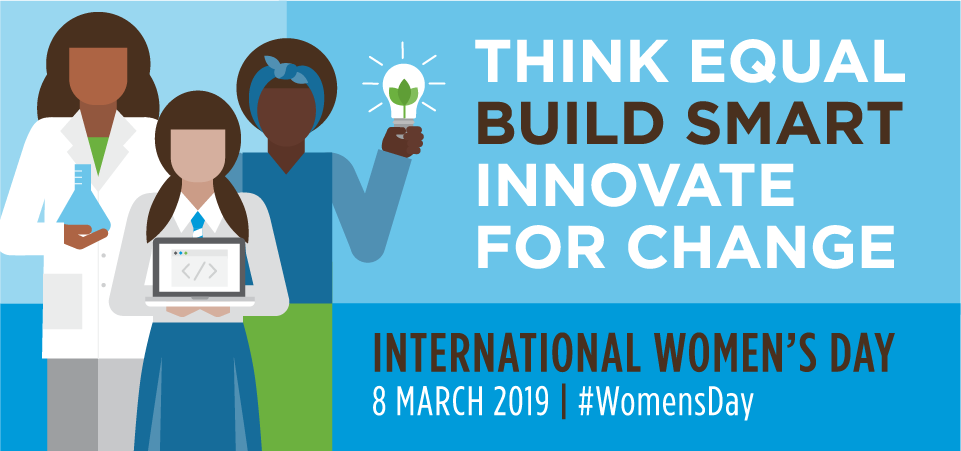
International Women’s Day (March 8) is a day observed globally. In some parts of the world it is a day to celebrate the achievements that *womxn have made socially, economically, politically, culturally and otherwise. And in other parts of the world it is a day of raising awareness about the many gender inequities that still exist.
In South Africa, with the increasingly high rate of femicide, the normalisation of harassment and sexual violence against womxn, queer and gender non-binary people and the widening gender inequality gap. It is now more than ever a time where we must realise that gender equality is as much a social justice issue, as it is an economic justice issue, as it is a democratic issue.
And at the heart of this, is a much-needed scrutiny of the commitment our government is making towards gender equality.
Last month, Finance Minister Tito Mboweni, delivered the much anticipated 2019 budget speech. Dubbed “another tough budget”, the delivery elicited a variety of responses from the media, civil society, labour, business, economists and politicians. Several of these responses have mirrored past concerns such as: the increasing austerity implicit in the spending priorities; the pressure state-owned enterprises (the most notorious being Eskom) continue to place on the economy; and the “meagre” increases in social grants to name a few. Not in the least, is the overarching question, how and if the budget tabled will improve the circumstances of the 30.4 million South Africans living in poverty?
While it is commendable that one of the key tasks of the budget is to “improve the conditions of life for all South Africans, especially the poor” and attempting to fulfil this mandate by having the largest allocations in the budget go towards education, health and social development. Nevertheless, it is disappointing that we still do not have a budget that actually takes into consideration the identity of who the majority of South Africans are, and the intersecting inequalities those people experience.
Poverty and inequality in South Africa have a gendered dimension. Statistics South Africa regularly produces reports that echo the existence of the feminisation of poverty, particularly for black, poor womxn living in rural areas. This is a story so often told, that it is puzzling to find that South Africa is yet to make any real progress in ensuring that the budget is gender responsive.
Interestingly, in May 2018, Minster of the Department of Women in the Presidency Bathabile Dlamini penned a news article, “gender-responsive budgeting as a tool for accelerated gender transformation”, that may have led one to believe the government was intent on heading in this direction. Especially with the assertion made by the minister that, “as the department located in the Presidency for the purpose of representing women’s policy concerns, our contribution to the national and global women’s movement is primarily through the reform of legislation and public policy. Importantly, recognising that it is through the fiscus that the state advances its legislative, policy, and programmatic agenda, we are developing a framework with which to ensure that such reform delivers the socioeconomic emancipation of women.”
And the minster is not alone in making a commitment to gender equality. President Cyril Ramaphosa declared to the delegates at last year’s Gender Based Violence Summit that “we hear you and we will not fail you”.
During his state of the nation address, he referred to this commitment and stated that funds in this current budget would be allocated to aid the fight against gender based violence. Retrospectively, looking at the actual budget, both Minister Dlamini and President Ramaphosa’s words are empty.
A review of the budget through the estimates of national expenditure, it becomes apparent that there is a serious lack of commitment for gender equality as a whole, let alone tackling gender based violence as one of the critical areas of concern regarding the socioeconomic emancipation of womxn in South Africa.
In as much as one has to be wary of being overly critical of the department of women, it is difficult not to do so because to a large extent that is where the mandate for gender equality is mostly situated, and the department serves as the conduit when funds are allocated to achieve this mandate.
In an analysis of the current budget, several concerns stand out:
First, the department seems to be spending a lot of money to keep its lights on. This is because 38% of projected expenditures will be channelled towards compensating employees, 26.2% will be spent on goods and services which is comprised of property payments and travel and transfers to the Gender Commission are set to amount to 35% of the budget (see Figure 1).
Second, the ministry’s work on womxn’s economic justice in South Africa is highly underfunded. Therefore its effectiveness in delivering socioeconomic transformation for womxn is doubtful. This is because each of the subprogrammes aimed at fighting for womxn’s economic justice at home receives less than R10 million each year while the Gender Commission receives 80% of the budget and this continues into the projected medium term expenditure framework (figure 2).
This does not mean that the commission’s budget should be reduced. What it does mean, however, is that the rest of the subprogrammes are not receiving enough for the ministry to carry out its mandate. A look at the ministry’s annual report as well as the current budget confirms that much of the ministry’s work is spent on drafting policy; therefore, it is yet to reach the implementation phase because policy remains in draft form. In cases where policy has been finalised (such as gender-responsive planning and budgeting framework and the financial inclusion framework), there are either implementation delays or the ministry spends its time holding dialogues. In this year’s budget, R13 million allocated to womxn’s “empowerment through inclusive economic development” will be spent on inter-ministerial dialogues.
Third, the only attempt at addressing gender based violence is situated under the stakeholder relations programme.
The department is allocating R49.1 million to “conduct 10 public participation initiatives in each year over the medium term.’’ These will not specifically be aimed at combating gender based violence, but will also be initiatives on “the socioeconomic empowerment of women and young women, gender equality.”
While we can appreciate the attempt to not view gender based violence in isolation by situating it within a broader framework of other societal relations, it is disappointing not to see any funding directed towards the implementation of the declarations of the Gender-Based Summit.
Last, the department’s obligation to international engagements –which include strengthening international relations and the country’s compliance with global norms affecting womxn and girls –requires the department to participate in various platforms such as high-level panels and ministerial meetings. The budget allocates R40.1 million to this programmatic area.
However, in a country where womxn bear the brunt of poverty, unemployment and inequality, fostering “inclusive economic development” locally gets allocated R 13 million in comparison to R 40.1 million given to international engagements.
In light of these expenditure estimates, one must question the value add of the department of women to transforming the lives of womxn in South Africa, particularly because the department’s existence continues to come into question year after year.
The Parliamentary Monitoring Group’s analysis of the department of women’s annual report 2017/18 states that:
“The same inconsistencies and discrepancies raised in previous years (2015-2017) were still apparent. The key concerns were: number of promotions and notch increases among department employees, specifically within management; high number of unmet targets which were disproportional to the amount of budget spent; high level of outsourcing to consultants; the department’s inability to hold other government departments to account on empowerment of women; lack of skilled personnel, specifically monitoring and evaluation practitioners, and ineffective leadership and management.”
The Parliamentary Monitoring Group’s observations and the 2019 budget allocations seem to indicate that the department of women merely exists without delivering on its mandate of championing gender justice through “the reform of legislative and public policy”. This leaves one to conclude that there is clearly a disjuncture in the claims to prioritise gender equality and the blindness of how budget priorities are set.
There is nothing futuristic about a budget that is not intentional in accelerating gender equality.
*The word “womxn” is used as the alternate spelling of the word “woman” or “women”, recognising the struggles, identities, bodily integrity, and intersectionality of feminist and womxn’s rights organising and strives to be inclusive of all on the gender identity spectrum, not excluding bisexual and trans men and women.
- Vuyokazi Futshane and Basani Baloyi work for Oxfam South Africa in the Economic Justice Unit




 Publications
Publications
 Partners
Partners











